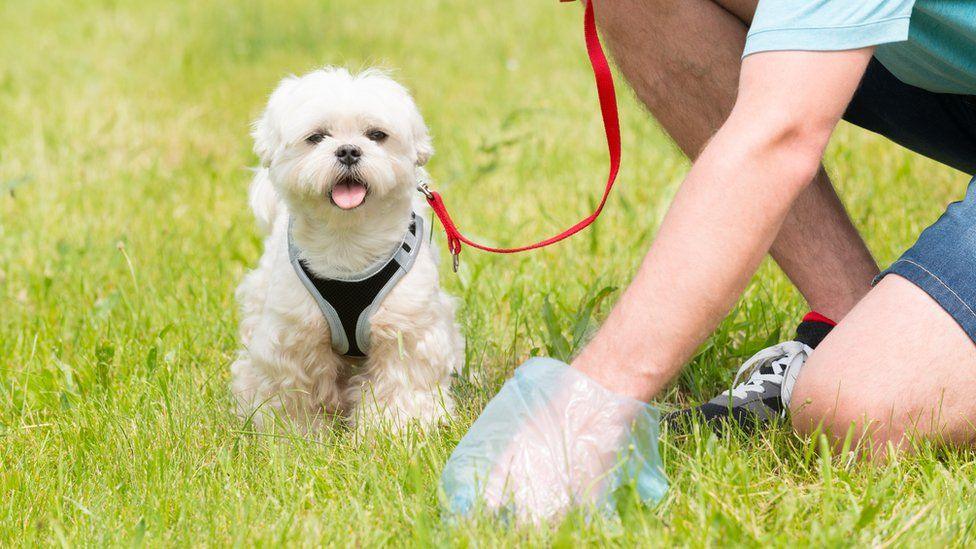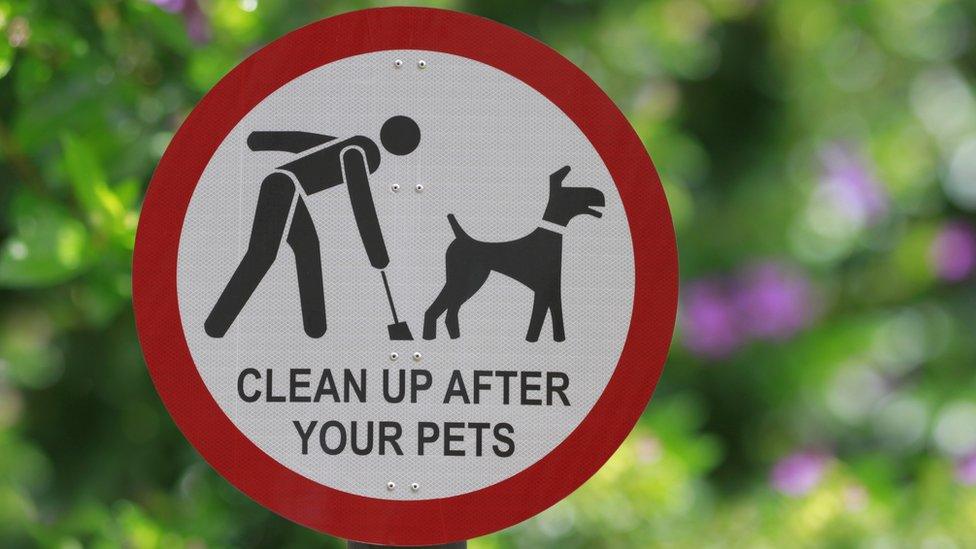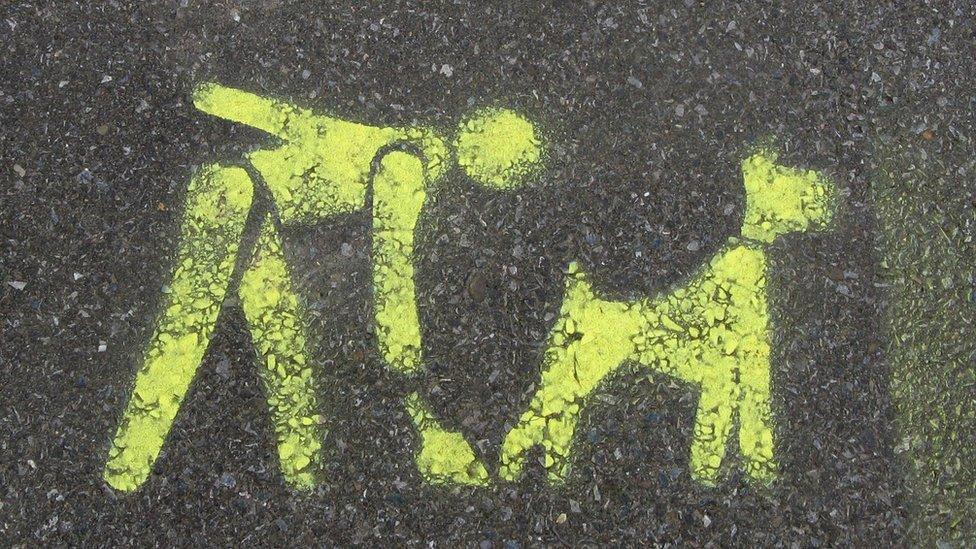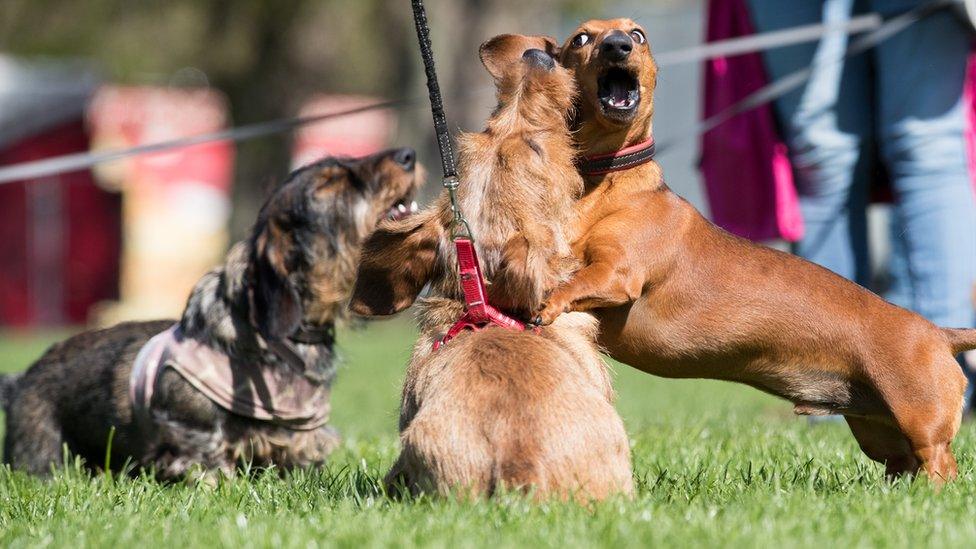Dog fouling: Belfast City Council members vote to raise fines
- Published

Elected members voted to raise maximum fines for dog owners from £80 to £200
Belfast Council is to sharply increase its fines for dog fouling, with new penalties reaching two and a half times the current level.
Elected members voted to raise maximum fines for dog owners from £80 to £200, and the reduced rate from £80 to £100.
Sinn Féin was the only party to oppose the changes.
The reduced penalty is given to those who pay within 10 days and the council may bring the matter to court if the fine is not paid.
The decision in Belfast follows a change in regulations at all local authorities which came into effect last December. The new regulations, covering people who litter, dog owners who fail to clean up their pets' foul, and who fail to put a dog on a lead in designated areas, specify that penalties will not be less than £50 and not more than £200.
Councillors at the Belfast People and Communities Committee were given four options to vote on. The first was not to increase or change fines. This was proposed by Sinn Féin, without the support of any other party.
SDLP Councillor Séamas de Faoite successfully proposed option two - an increase to a maximum fine of £200 for dog fouling - which received support from all other parties.

Councillors also discussed the issue of signage for dog owners
Option three proposed an increase of "anything from £90 - £190, with any level of reduction" if paid within 10 days.
The fourth proposal, from Green Councillor Anthony Flynn, was voted down by Sinn Féin and the DUP. It proposed applying any changes made to the fixed penalty limits for dog fouling offences to also cover littering offences.
Belfast's fixed penalty fine for littering is currently £80, reduced to £60 if paid within 10 days.
Explaining his party's stance on this issue, Sinn Féin councillor Michael Donnelly said: "We think the focus needs to be put on staff resourcing. You can increase the fine to £1,000, but it's really about catching the owner and the dog in the act."
Mr Donnelly also said there was a need for better signage.
"The signs that are currently up across the city, and I can only speak for my area, are not impactful. They are not in the right locations," he said.
Related topics
- Published18 February 2020

- Published30 August 2018
